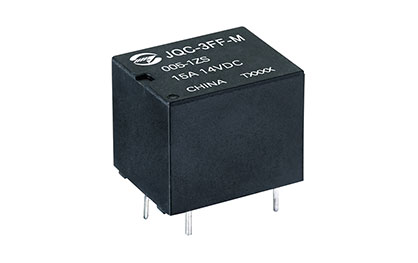
Automobile relays are relays used in automobiles. Such relays have high switching load power, high shock resistance, and vibration resistance. Most power supplies in automobiles use 12V, and most of the coil voltages are designed to be 12V. We, being one of the professional automotive relay manufacturers, ensure that our types of car relays for sale are meticulously designed, produced, and maintained to adhere to rigorous quality assurance standards.
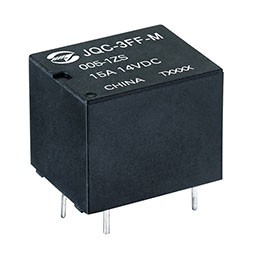
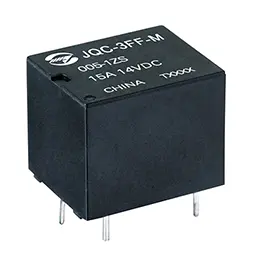




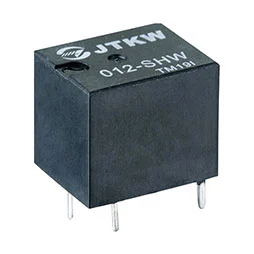

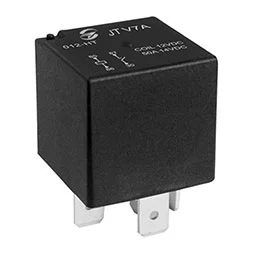






Despite all the different types of automotive relays, they all operate on a common principle: as electromechanical devices, they utilize an electrical signal to toggle a mechanical switch. It typically consists of a coil of wire wrapped around a soft iron core, which generates a magnetic field when a voltage is applied to it. The magnetic field pulls a metal armature towards the coil, which closes a set of contacts and completes an electrical circuit.
When the voltage to the coil is removed, the magnetic field collapses, and the spring returns the armature to its original position, opening the contacts and breaking the circuit. This process of opening and closing the contacts can be repeated many times, allowing the relay to switch the electrical circuit on and off as required.
The contacts in an automotive relay can be either normally open (NO) or normally closed (NC). In a normally open relay, the contacts are open when the relay is not energized, and they close when the relay is energized. In a normally closed relay, the contacts are closed when the relay is not energized, and they open when the relay is energized.
Automotive relays for sale are commonly used to control electrical loads such as headlights, cooling fans, fuel pumps, and power windows in vehicles. They are also used to protect electrical circuits from overloading and short-circuiting.

Electrical isolation: Automotive relays provide electrical isolation between the control circuit and the load circuit. This means that the control circuit can be operated by low voltage or low current, while the load circuit can be operated by high voltage or high current. This helps to protect the control circuit from damage and ensures reliable switching of the load circuit.
Reliable switching: Automotive relays are designed to switch electrical circuits with a high degree of reliability. They can handle high currents and voltages, and are capable of switching on and off rapidly and repeatedly. This makes them ideal for use in applications such as headlights, cooling fans, and fuel pumps.
Low power consumption: Automotive relays consume very little power when in the closed or open state. This means that they can be used in applications where energy efficiency is important, such as battery-powered systems.
Long service life: Automotive relays are designed to operate reliably for long periods of time. They are made from high-quality materials that are resistant to wear and tear, and are designed to withstand the harsh operating conditions found in automotive applications.
Email:
lilian@zettlernb.comCall Us:
+86-574-62502203Address:
No. 5, Shuntai Road, Yangming Industrial Zone, Yuyao City, Zhejiang Province